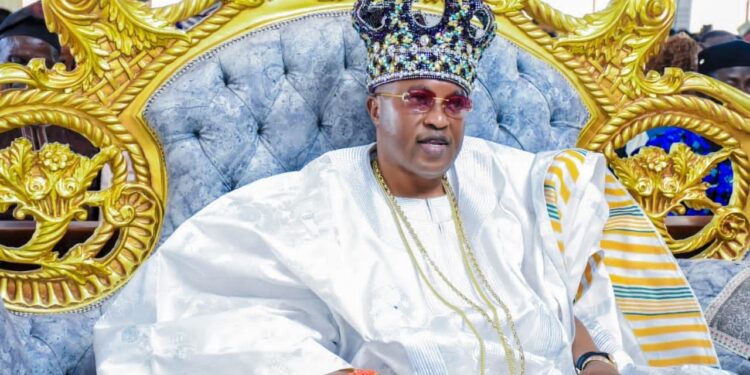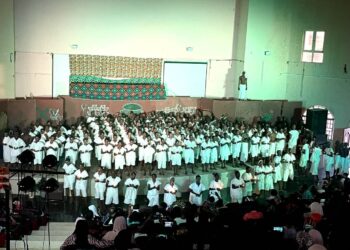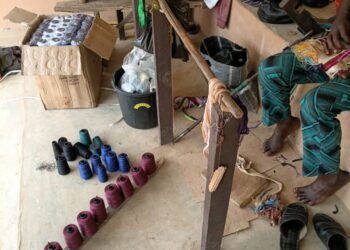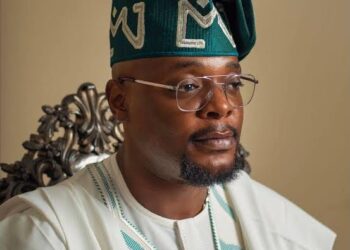By: Fémí Emmanuel
THE DANGERS with the modern and self-acclaimed traditional rulers in Yorubaland not only hang on the sacredness of the thrones and stools they reign on and the people they preside over, it extend beyond their time and seasons. They have come to pollute the traditional system through which they are installed, and desecrated the throne that gave life to their dreams. They’re the ungrateful and ingrate personified. With their trends and unchecked attitude towards tradition and culture, the future portends doom. The risks are too many to take if their manipulations of tradition and culture continues. There is a limit to human endurance . Such traditional rulers are disasters waiting to happen!

LET USE this moment to welcome you to the world of His Imperial Majesty, Oba Abdulrosheed Akanbi, the Oluwo of Iwo, who has taken it upon himself as the protagonist against clash of traditions, cultural norms and values. A battle he stands no chance of winning, at least within the contexts of how he became traditional ruler, and what was involved in times of rites and rituals. The decision of Oba Abdulrosheed Akanbi, to renounce traditional rites on religious grounds, has, no doubt, ignited widespread debate and mixed reactions across the Southwestern Nigeria, particularly, among traditional institutions and cultural stakeholders of Yoruba extraction.
SIGNIFICANTLY, Oba Akanbi, as the 32nd paramount ruler of Iwo Kingdom, Osun State (not Ondo State), has remained firm in his refusal to undergo, or promote traditional rites typically associated with Yoruba monarchs. The Oluwo of Iwo needs a lot of public relations efforts to be in the news for right reasons. This time around, the statistics shows again that he is in the news for wrong reasons. Because no one can fight a system that produced him or her. Oluwo is a product of Yoruba traditions and cultures. This is not debatable. He cannot argue over it either. His stance and unchanged position, while constitutionally defensible, but traditionally an affront, has stirred cultural tensions and assorted of aberration, which raise questions about the future of Yoruba traditions in the face of modern religious advocates, with their unrefined convictions and subtle methods of get to the throne first, change the rule of the game thereafter. That’s tragic fate for those who dream along that line of thought.
MOREOVER, though traditional critics continue to argue that the monarch’s position undermines the rich cultural heritage of the Yoruba people, especially given that he previously submitted to traditional rites before ascending the throne. The kingmakers and custodians of Yoruba tradition – who facilitated his installation through customary procedures and processes; feel betrayed by what they consider a u-turn on a sacred oath. This is nothing better than scam and forgery of rules of engagement.
BY REFUSING to support or perform traditional rites, the Oluwo is accused by some folks and eminent Yoruba sons and daughters, of sending a dangerous message and precedent that will not augur well: that the centuries-old customs can be discarded when they conflict with personal religious beliefs. This, according to cultural purists, risks the gradual erosion, and possible extinction of Yoruba customs and values, globally recognized for their depth, richness and symbolism.
A MONARCH’s right via cultural rebellion is a reflection of hidden agenda, rather than being agent of change in the right direction. Though the supporters of Oba Akanbi insist that he is within his rights as a Nigerian citizen, in which Section 38 of Chapter Four of the Nigerian Constitution guarantees every individual the freedom of thought, conscience, and religion; including the right to change one’s religion or belief. From this legal standpoint, the Oluwo’s decision is not just valid but protected, IF it is based on individual contexts, not with the plurality of members of a given community or town. Discord is bound to rise, tension and likely escalation cannot be ruled out. Because where Oluwo’s rights end, other members’ rights begin. It is a universal law aphorism.
IN their insistence they argue that no monarch should be coerced into spiritual, or traditional practices that conflict with their personal beliefs. But these personal beliefs are not dead when he was being involved in rites and rituals before he was crowned? To them, the monarch’s renunciation of traditional rites does not make him less legitimate, or worthy of his title. Instead, it reflects a modern evolution of kingship, one that blends heritage with contemporary values. Indeed?
WHILE it is urgent to ensure the stability of tradition and cultural norms along with their values, to preserve cultural institutions without forcing or imposed beliefs is attainable. Though the monarch’s actions have sparked passionate discourse, experts and cultural leaders are calling for caution and mutual respect. Nigeria’s traditional institutions, they argue, must begin a sober reflection on how to preserve cultural heritage without infringing on personal liberties. Besides, the best precaution is for those who admire the throne to stay-off, if they cannot abide by the rules and dictates of Obaship engagements.
REMARKABLE is the fact that there is need for sustained sensitization, dialogue, and policy advocacy that protects both tradition, culture and the rights of individuals. Based on the benefits of insights too, the blend of religion and tradition must be approached with care. Cultural experts emphasize that although both play significant roles in society, they serve different purposes. Tradition forms the foundation of the Yoruba’s identity, and while individuals may exercise their religious convictions, traditional rulers must also serve as cultural ambassadors, who safeguard the legacy bequeathed and entrusted to them.
LIKE a coin with two sides, there is need to forge forward beyond the needless agitations over traditional and cultural practices, against self beliefs of contemporary religion protagonists. There should be mutual respect and regional institutional reform that safeguards traditions and cultures. Beyond reasonable doubt, the Oluwo’s case presents an opportunity for traditional institutions to redefine their expectations of monarchs in the modern era. Rather than enforces rites that may infringe on a ruler’s conscience, cultural institutions might consider reforms that uphold values without violating rights.
NEVERTHELESS, traditional rulers must also recognize the weight of the offices they hold. They are not merely community leaders but symbols of a people’s ancestral pride. Therefore, they should actively promote cultural initiatives, support traditional festivals, and encourage cultural education among the youth, to ensure the survival of Yoruba identity.
BEFORE the curtain is drawn, as a matter of fact, the Oluwo of Iwo’s stance has exposed the complex intersection of culture, religion, and human rights in Nigeria. While his decision is within the boundaries of constitutional freedom, it raises valid concerns about the future of cultural traditions and the role of monarchs as custodians of heritage, or descration of age-long traditional institution.
AS Nigeria continues to evolve, it must find a balance where both tradition and modern values coexist to respect the past without compromising the future. Traditions and cultural rites should remain sacred and symbolic for those who believe in them, while religious freedoms should not be vilified or suppressed, or mixed up. After all, no one can serve God and mammon at the same time, or use mammon to get to God. Stay where your faith will not collide with traditions and cultural practices. Give to Ceasar what belongs to Ceasar, or stay distanced from traditions and cultural practices. No one forces any one to be king. It is your choice and you must abide by its details. Case closed.
You can get every of our news as soon as they drop on WhatsApp ...To get all news updates, Join our WhatsApp Group (Click Here)












